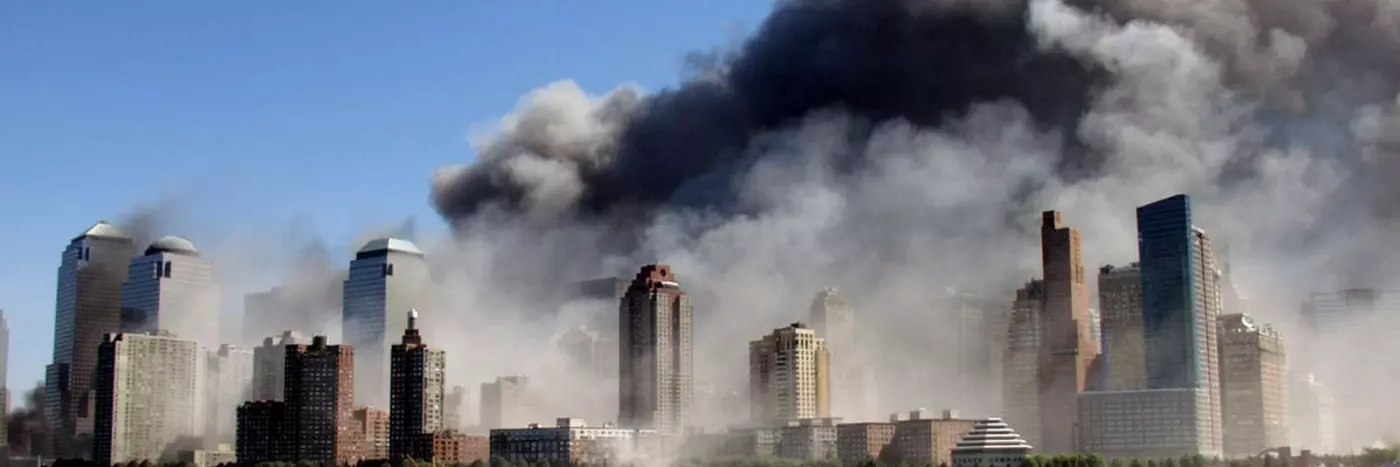There’s a bomb in my closet
On being queer, Arab and Muslim 20 years after 9/11
Highly Commended in the Antidote and Sweatshop Mentorship Program for Diverse Emerging Writers
Warning: This article mentions suicide. If you or anyone you know needs help, you can call Lifeline on 13 11 14.
He called us “camel fuckers”.
The memory sprung back to me as I watched Dr Randa Abdel-Fattah discuss humour as a coping mechanism against racism on a panel moderated by poet Sara Saleh alongside Professor Ghassan Hage and Dr Michael Mohammed Ahmad. As a Lebanese Australian Muslim who grew up in a post-9/11 era, ‘No Lebs’: Anti-Arab racism since 9/11, part of Sydney Opera House’s Antidote festival, resonated strongly with me.
I remember the weary war veteran. Spittle on his chin as he berated us, his eyes glinting like the war medallions he spoke so highly of. I caught his intense blue-eyed gaze and felt every atom of his hatred for us. Withered pale mouth opened so wide that we could see down his black insides like the barrel of a gun. And he was using it to shoot more bullets our way.
He was shouting at my friend Rameesa and I. In our Year 10 Malek Fahd Islamic School uniforms, mandatory white headscarves that singled us out for judgement, we held our breath waiting for him to finish, seemingly alone and terrified.
His sallow cheeks reddened – an explosion of vessels. I could hear my heart hammering away in my chest.
We shook as he yelled about “gutting a turban-head” and how we seemed like “far too nice girls” to get involved with Islamic terrorists. Rameesa was polite at first, playing along with his questions, hoping he would leave us alone. But as her voice wore on, the weary war veteran got angrier. His sallow cheeks reddened – an explosion of vessels. I could hear my heart hammering away in my chest.
I tried to calm him down the same way I had learned to calm down my ex-girlfriend during her suicidal episodes. All those days perusing Beyond Blue’s website came in handy as I remembered that empathy would often make emotional people more likely to listen and seek help. Validate them. “I’m sorry for what the war did to you and what you went through. I can’t imagine the pain you’ve lived through.” He stopped, confused, like he was about to cry. The war medallions in his eyes seemed to lose their shine as his eyes began to gloss. He wanted me to fire back but I gripped Rameesa’s sweaty hand in mine, gaining strength as I considered what else I could say to fill the space between us. “A lot has happened since 9/11. It wasn’t our fault. I’m Lebanese. She’s Bangladeshi. We’re not the ones who did that to you.”

The train intercom interrupted his reply. I apologised and quickly said it was our stop (it wasn’t) and we hopped off the train.
Hage explains, “there’s no point communicating with racists who desire to hurt. But there’s a point to communicating with racism borne of ignorance”.
The weary war veteran desired to hurt. He directed the pain and anguish that his war days left him with into racist rhetoric. In his mind, us “camel-fuckers” were the reason he couldn’t sleep at night. Why his nightmares were still full of the cries of dead men. Abdel-Fattah comments that this aspect of racism can be so specific, but also fluid, making it difficult to fight. When Australians embraced the metonym of the ‘Leb’, as Ahmad puts it, they did so to justify the stigma and prejudice heaped onto Muslims and Arabs alike post 9/11. My friend was Bangladeshi. She wasn’t even Arab, but that didn’t matter to the war veteran. Her skin was brown. She had the veil on. Across the globe, different kinds of Arabs and Muslims were targeted. In the UK, the ‘Paki’ was vilified. In the USA, the ‘Saudi’ became the common enemy. In Australia, the ‘Leb’ was an identity bestowed on anyone Arab-looking and Muslim. This made Rameesa every bit the ‘Leb’ that I was.
As the 20th anniversary of 9/11 anniversary passes, I think of my lasting friendships with Rameesa and other high school peers. When 9/11 happened, we were kids, barely in Year 1. As we grew up, a unique phenomenon became apparent at our strictly Muslim school, where we existed in our own personal bubble devoid of the distinctive brand of Islamophobia and anti-Leb rhetoric that had overtaken Australia since 9/11. Within the grounds of our school, it didn’t matter if you were Lebanese, Indonesian, Malaysian, Vietnamese or Iraqi. It didn’t matter if you were Sunni or Shia, or any other sect of Islam. You were simply another Muslim student once you entered through the gates.
I think that’s why it was so confronting to realise I was a lesbian, no longer just another Muslim student shoehorned by the stereotypes of a post-9/11 era. I was distinct, just as much as I was a member of this community.
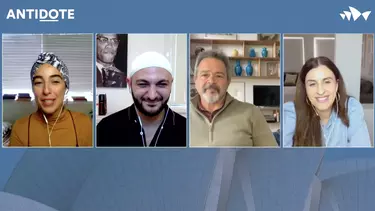
As a self-proclaimed person of Lebanese heritage and a Western Sydney ‘Leb’ who engages with a variety of colourful and diverse individuals, I am often confronted by confused listeners from cultures and classes far removed from my own. They retort, “How does it work? The whole lesbian non-binary Muslim thing?” And I laugh because it doesn’t.
I’m almost thirty and I still haven’t figured out the secret formula that allows all my identities to behave themselves and co-exist peacefully. But I blame society for that more so than I blame myself. Abdel-Fattah interrogates intersectionality using the example of class as a major factor in how 9/11-affected communities. I adopt this reasoning to argue that my own queerness was a major factor in how 9/11 affected me differently from my peers. Most notably, how alienated I felt.
Hage raises an important point when he brings the discussion back to race. Hage, who is of Christian Lebanese background in contrast to the other Muslim panellists, allows the topic to broaden beyond the scope of Islamophobia, commenting, “Racists thrive on making you internalise the negative image they have of you”.
I would argue it’s not just racists that thrive on this. My Muslim peers projected their negative image of queerness onto me. Any hint of my lesbianism was met with disgust and mistrust. The negative image I held of my sexuality was one of perversion. My relief about seeing myself as an individual quickly turned into self-hatred. Throughout high school, my identities were in opposition and I thought I couldn’t have one without losing the other.
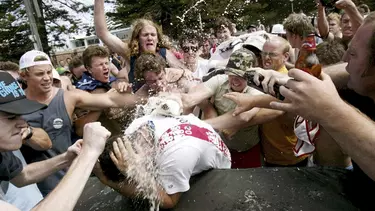
Hage also says has never encountered “a racist that wasn’t able to smile as they are digging something into you”. His article ‘Continuity and Change in Australian Racism’ discusses the pattern of Australian racism further. It begins with an aggressive moment, followed by more prevailing and long-term ‘comfortable’ moments of routinised racialised forms of interaction. This makes me laugh, then think about something I haven’t thought about in a long time.
“Don’t take this the wrong way, but you’re the only Muslim and Arab I’ve ever met that I liked,” my first girlfriend, who is a white Australian, tells me as a compliment. I was naïve and self-hating at the time, in my 12th year of high school in 2012, so I took it as one. I never thought of it as racist, but as my identity shifted, so too did racism I experienced. I discovered a new kind of racism in my new queer circles, and I was ignorant of it. I would even go so far as to say that I partook in it.
The relationship turned abusive. As I got better at conflict resolution, I became better at dealing with angry white war veterans, but it didn’t help me leave her. She isolated me from my friends with relative ease because I’d already done half the work for her. I was terrified to tell them anything about this relationship. I couldn’t even ask their advice about whether this was what love was supposed to feel like because they’d just tell me that it was unnatural so of course it doesn’t feel right. But I loved her.
As Islam dictated, and as the good Muslim girl I thought I was, I had to marry her – obviously. I couldn’t tell my family, but I thought I could at least tell my friends. After coming out to one of my most devout friends, she said something that I have held close to my heart for the last twenty years. She asked me if I still believed in Allah and I told her that I did. And she told me that was the important thing, it meant I was still her sister in Islam.
Islam informs my sexuality, and my sexuality informs my practice of Islam. Communities gain power as a collective when they recognise their multiplicity.

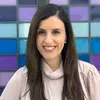
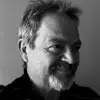
The validation of our connection meant the world to me. It’s what has kept us close all these years. Eventually, as they began to understand me better, their tolerance grew into love and support and they, in turn, explored what it really means to be Muslim. We found strength in each other, the same way we did when we the weary war veteran turned on us in high school.
What growing up in a post-9/11 era taught me is that concepts of individual identities and communities borne of commonality are equally fragmented. Just as Australians endorse the metonym of the ‘Leb’, must Arab and Muslim communities subscribe to the false notion that queer Arabs or Muslims do not or cannot exist?
20 years later, we are still having the same discussions about why white Australians continually adopt racist rhetoric. Yet, similar rhetoric exists within our own circles with little acknowledgement. I do not believe my lesbianism makes me less Muslim, but my peers did. Islam informs my sexuality, and my sexuality informs my practice of Islam. Communities gain power as a collective when they recognise their multiplicity. Differences in individual identity do not diminish the strength of the community as a whole. and I believe we have much to learn from recognising and critiquing our individual differences and allowing critique within the community to further improve upon ourselves.
As we move into the next 20 years post-9/11. I hope we can create the alternative spaces of autonomy Saleh and Hage advocate, and recognise our collective power as a community to create a future where religion, race and sexuality no longer separate us.
Watch the Antidote discussion ‘No Lebs’: Anti-Arab racism since 9/11 now on Stream.
